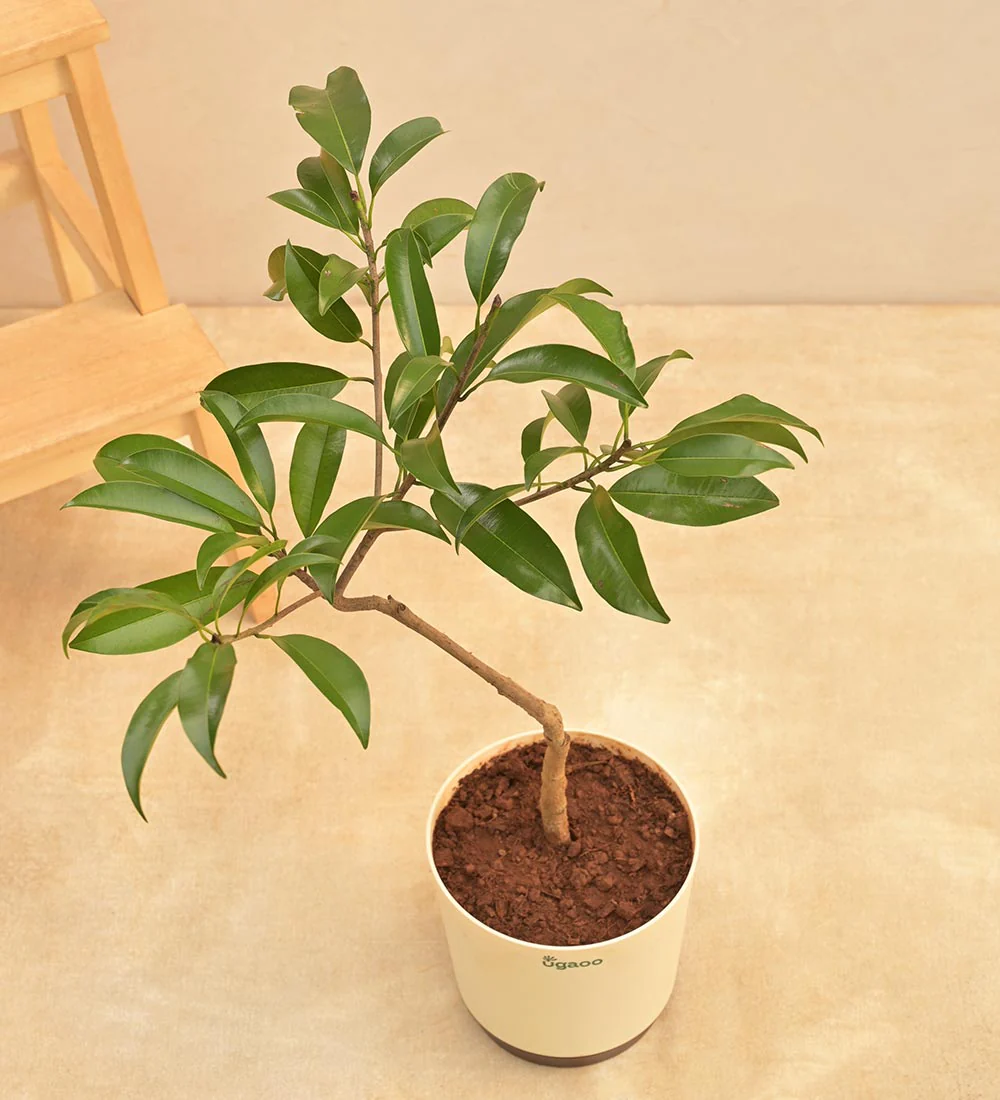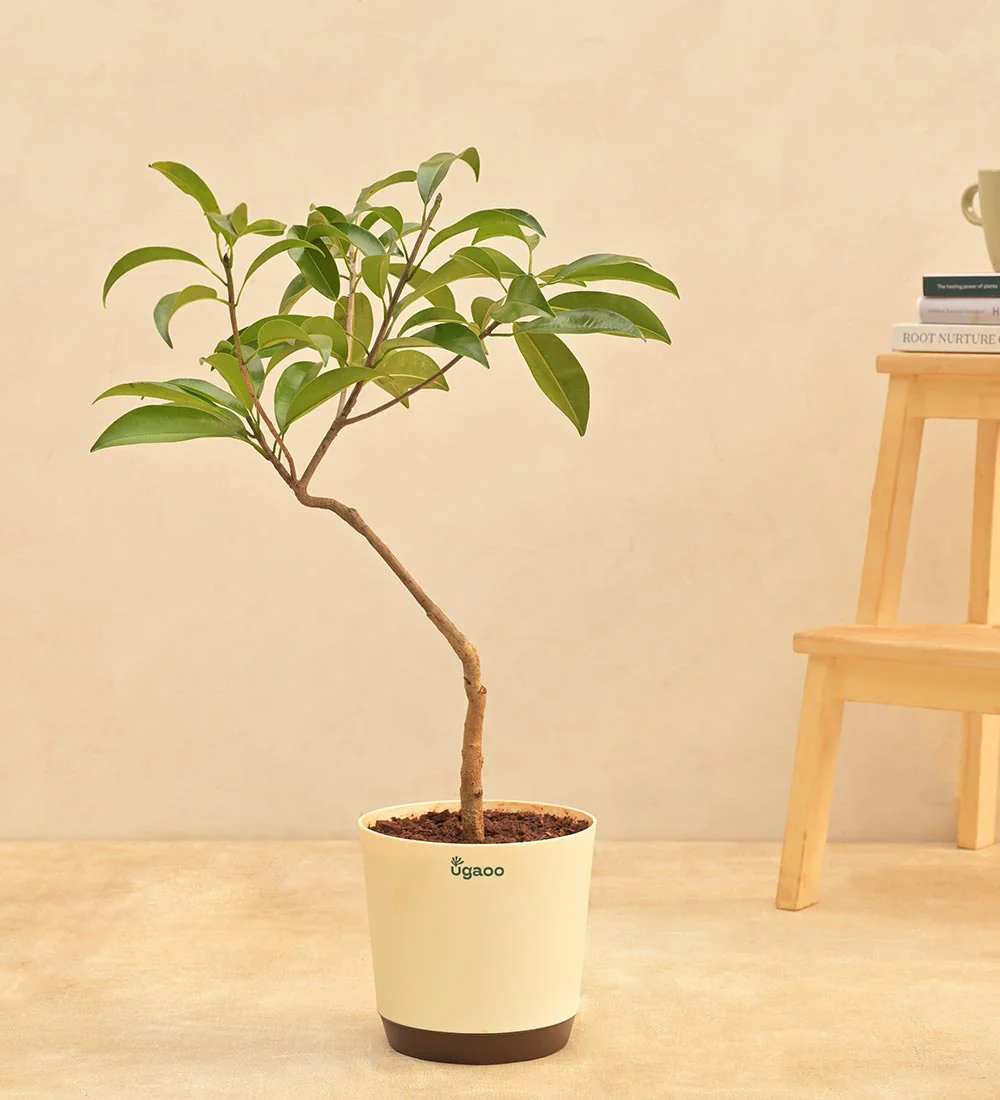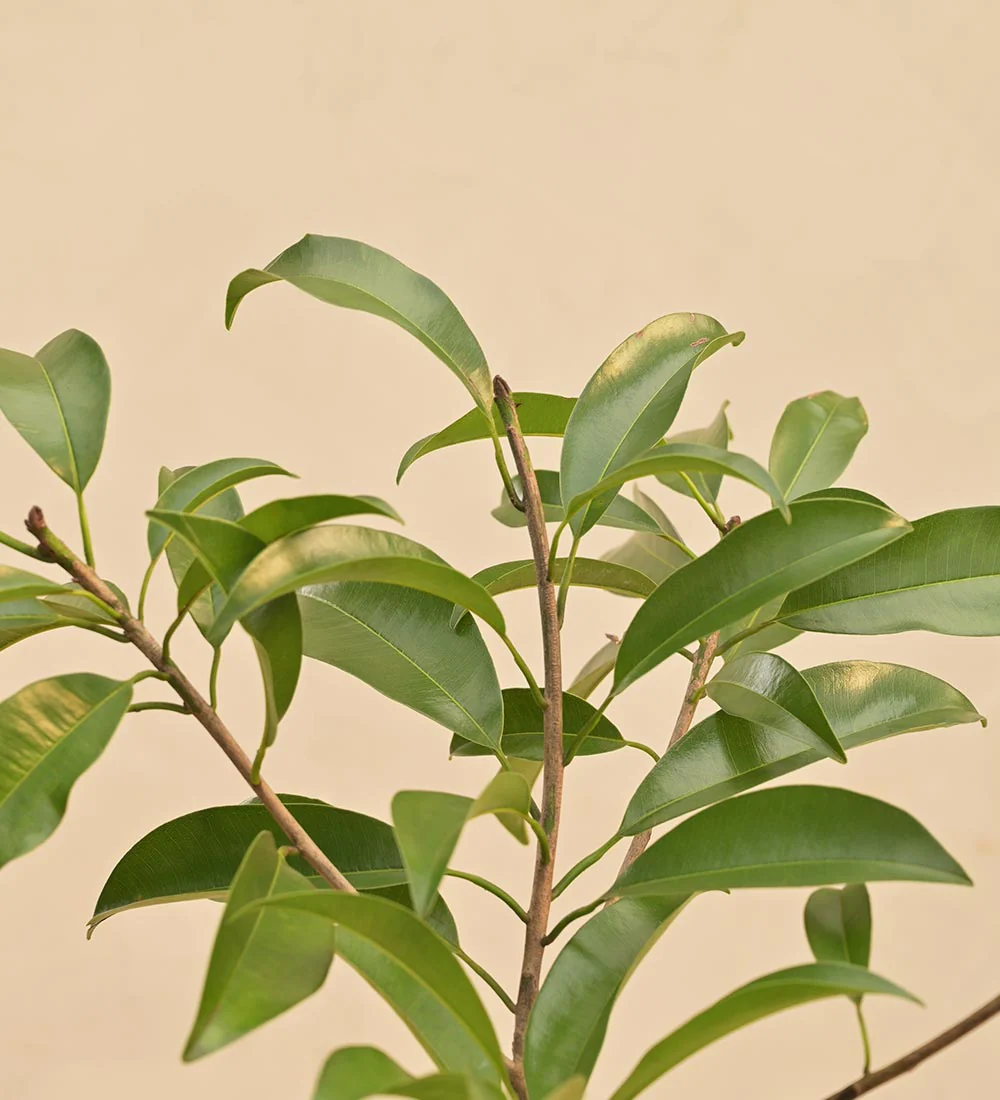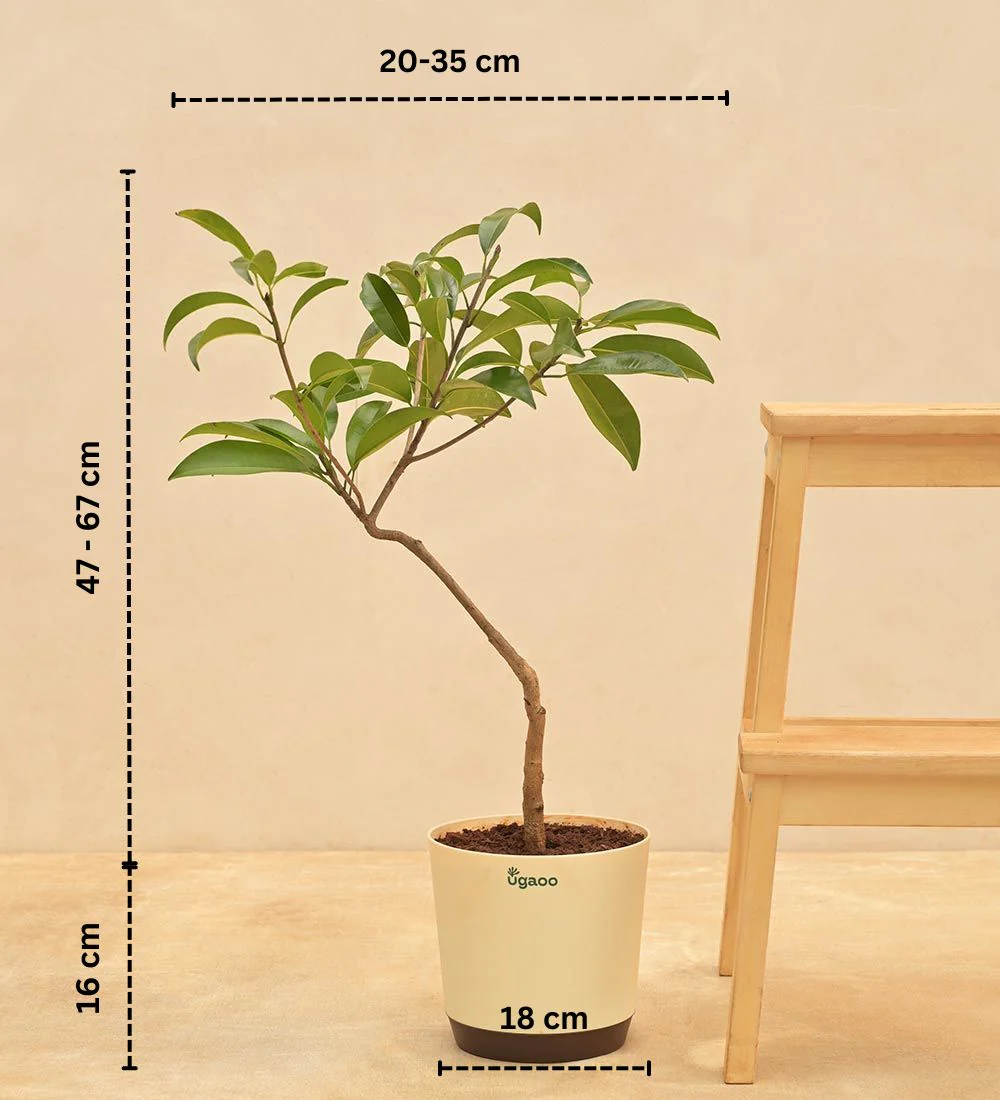The Ixora (Rugmini) Plant, also known as West Indian Jasmine, is a tropical evergreen shrub celebrated for its vibrant orange, star-shaped flowers. Native to South and Southeast Asia, this plant adds a splash of color to gardens, patios, and indoor spaces.
The Sapota plant, also known as the Sapodilla plant, is known for its sweet, fleshy, and wholesome fruit – the Chiku. Beloved for its sweet taste and many health benefits, this fruit is popularly consumed in our country. The Chiku fruit plant grows to become an evergreen tree, giving you a bountiful harvest of its fruit during 2 periods of the year – January through February, and May through June. Additionally, with the right kind of care, this plant can give you companionship and a fresh, sweet harvest for years on end!





Subscribe our newsletter
© Copyright 2024 | PlantUncle By Eaglemedia360.com